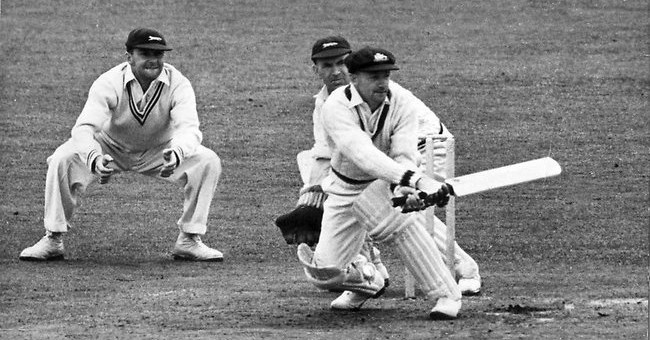Cricket researcher takes on the Aussies in their backyard
 Australian cricket legend Don Bradman at the crease
Australian cricket legend Don Bradman at the crease
Mon, 18 Jan 2016 10:56:00 GMT
Historian Dr Duncan Stone will work with leading sports historians at Melbourne’s Victoria University
 FOR a historian who specialises in sport and the social significance of cricket in particular, the opportunity of a research visit to Australia is the academic equivalent of being selected for an Ashes tour. This means that the University of Huddersfield’s Dr Duncan Stone (pictured right) is delighted to have been offered a placement as a visiting academic in Melbourne.
FOR a historian who specialises in sport and the social significance of cricket in particular, the opportunity of a research visit to Australia is the academic equivalent of being selected for an Ashes tour. This means that the University of Huddersfield’s Dr Duncan Stone (pictured right) is delighted to have been offered a placement as a visiting academic in Melbourne.
It will be the latest in a sequence of trips Down Under for Dr Stone, who has presented conference papers and met leading Australian sports historians, such as Dr Matthew Klugman, (pictured below) of Victoria University, where he is leader of the Sport, Heritage & Cultures Research Group.
He invited Dr Stone to pay a five-month visit to the VU campus in Melbourne, and the opportunity to take part in joint research projects.
“I will get a desk on one of their satellite buildings – which I believe is on a former cricket ground!” said Dr Stone, whose PhD at the University of Huddersfield dealt with amateur cricket and the social issues surrounding it in Surrey. He is completing a book based on the thesis and has lectured at the University of Huddersfield, where he is a visiting research fellow.
During his stint at Victoria University, Dr Stone will have the opportunity to carry out work in the archives at the famous Melbourne Cricket Ground and he has discussed some intriguing research projects, such as contrasting English and Australian attitudes to Donald Bradman and his “Invincibles” tour of England in 1948.
 Victoria University is becoming a major hub for sports history – a subject that probably has greater academic credibility in Australia, said Dr Stone. But he added that attitudes are changing in the UK, so that he now aims to publish his work in more general history journals.
Victoria University is becoming a major hub for sports history – a subject that probably has greater academic credibility in Australia, said Dr Stone. But he added that attitudes are changing in the UK, so that he now aims to publish his work in more general history journals.
He has an article due to appear in the next edition of Urban History, in which he argues that a distinctly middle class cricket culture – rejecting competitive leagues – provides new insights into suburbanisation and the complexities of suburban life in the South East.







